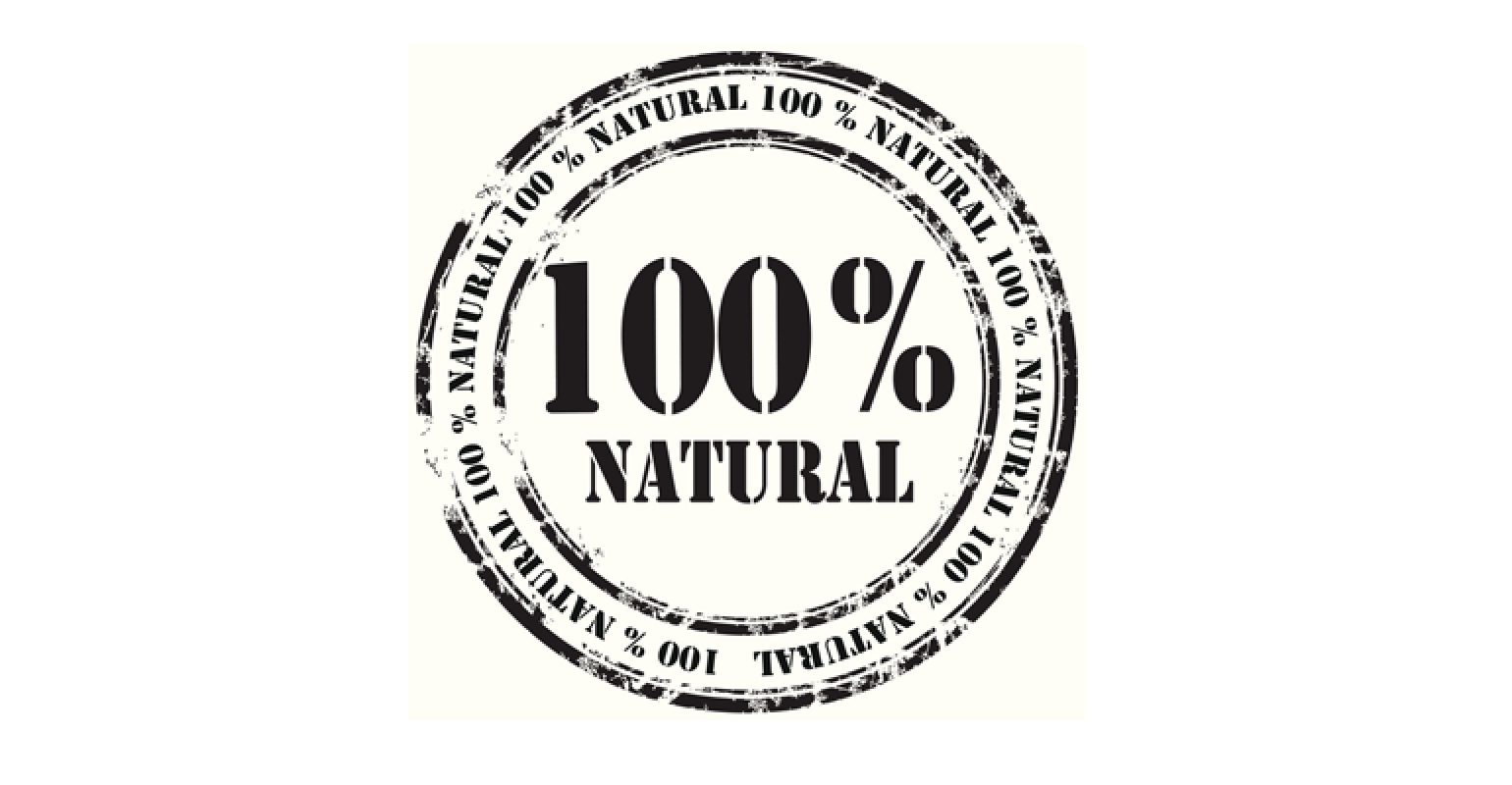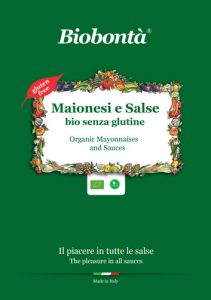We are literally submerged by the term “natural” or, even worse, “100% natural” that we find on the labels of a considerable amount of food products. The term is raging even on the TV and magazines. Even pet food is considered “natural”. Here they are the 7 reasons to distrust the word “natural”.
1. Everything is natural, included the reviled plastic!
It derives from oil (from the late Latin word petroleum, made of petra “rock”, and oleum “oil”, the oil from the rocks) which, according to the biogenic theory, consists of plant and animal marine unicellular organisms (phytoplankton and zooplankton) buried underground hundreds of millions of years ago, particularly during the paleozoic, when such organic matter was abundant in the seas.
So, because of transitive property, if oil is of “natural” origin, plastic is also “natural”! Not to mention coal, also of “natural” origin.
Paleontological, stratigraphic, and sedimentary observations concluded that coal was mainly formed from plants grown in swampy ecosystems. When these plants died, their biomass settled in anaerobic underwater environments where the low level of oxygen present prevented their decay, prevented the oxidation, decomposition, and release of carbon dioxide. The birth and death of later generations of plants formed thick deposits of non-oxidized wood organic matter, later covered with sediments, and compacted into carbonaceous deposits such as peat, bitumen, or anthracite. Clues as to the type of plants that originated a deposit can be traced in the shale rocks or sandstone that covers it or, with special techniques, in the coal itself.
I do not want to confuse you, but simply to make you understand the absolute abstraction of the term “natural”.
Coal and especially oil and plastic are among the main culprits in the devastation of our habitat is another story!
2. A list of terms used for food is based on laws and rules Here some examples:
• PDO, PGI, DOCG, TSG, etc. are all regulated by laws and procedures (Regulation EU No 1151/2012);
• Gluten free, lactose free, sugar free, fat free, etc. are regulated by the laws of labelling. Each of these claims has precise rules that defines the scope (Regulation EU No. 1169/2011);
• Organic farming is also strictly ruled-based in all its aspects: cultivation, the use of fertilizers and plant protection products, animal husbandry and the processing of products (EC Regulation No 834/2007);
• Mineral water: is the only food for which the term “natural” is standardized (Directive 2009/54/EC).
“The waters referred to in the first subparagraph may be so recognized only if the responsible authority in the country of extraction has certified that they satisfy the provisions of Annex I, Section I, and that regular checks are made on the application of the provisions of Annex II, point 2.”
• Actually, even aromas have a precise rule to be defined “natural” (Regulation EC No 1334/2008). Particularly, the regulation says:
“In order to provide consumers with correct information, the new regulation lays down, among other things, specific provisions for the use of the term ‘natural flavouring‘. In particular, if the natural term for an aroma is used on the label of a food product in the list of ingredients, the flavouring components used must be of natural origin at least 95% (p/p), while the remaining 5% may be used only to standardise or confer, for example, a fresher, pungent, ripe or unripe aroma note” (article 16 and 29 of the Regulation EC No 1334/2008).
So, aromas can be “natural” also only by 95%!
3. The word “natural” is not undergoing any standardization at the moment. It can be used in a proper and especially unproper way without follow any rules!
SAFE (Safe food advocacy Europe), a non-governmental food safety organization, analyzed the composition of hundreds of products available on the market and found that most of the foods that use this claim actually contain synthetic chemicals that are far from being considered natural.
The NGO then launched the “We value true Natural” campaign to raise awareness about this issue and call for legislation that allows consumers to identify truly “natural” products. According to the NGO, the “natural” attribute is increasingly attractive to consumers and tends to be associated with positive characteristics, such as healthy, free of synthetic chemicals, biodegradable, unprocessed or GMO-free. These references should be endorsed by a reliable labelling system. (credits to Il Fatto Alimentare – Valeria Balboni – 11 Dicembre 2020).
4. At this point, the great writer Achille Campanile comes to mind. He is the author of a memorable theatrical piece called “Mineral Water” in which the hilarious pun with the term “natural” even leads to the discussion about the “natural” child. If Campanile were still alive, he would have certainly written something hilarious about the phrase “100% natural”, the most recurring term on the products available in the market.
We never find a label bearing the words “30% natural”, I wonder why? Products are only and always “100% natural”!
5. Let’s leave the joke and get back serious. The term “natural” turns out to be a convenient coverage of any productive choice, good or less good, which is upstream of the product itself.
Let’s make a few examples:
• First of all, processed food is never made up of a single component. Most of the time, there are also additives, processing aids, aromas, etc., whose use is approved by law. Still, we hardly could define them as “natural”.
• There is a wide range of substances deriving from significant biotechnologies that reproduce the “natural” molecule. The process to obtain it, however, is far from “natural”. Citric acid which is not derived from squeezed lemons, yet is made in a much cheaper way, that is, genetically modified yeast cultures, is a case in point;
• And what about wine? Processing aids and additives that can be used in the production process are more than 100.
Just to cite a few: sulphur dioxide, milk or egg proteins, gelatin and isinglass, acetaldehyde, dimethyl dicarbonate (DMDC), meta-tartaric acid, ascorbic acid, Arabic gum, bentonite, potassium caseinate, silicon dioxide, pectolytic enzymes, tannins, hydrolyzations, polyalcohols, glycerol, etc., etc., etc.
Don’t you feel dizzy, without even drinking? Who knows whether the wine Noè produced and got drunk with was “natural”. The current one is much less so, that’s for sure.
6. As a general rule, any food is “natural” as it is transformed by man to become food.
In practice, only the spontaneous products of the earth such as mushrooms, apples, oranges, etc. are “natural”.
Art. 2 of the regulation (EC) No 852/2004 states that “primary products means products of primary production including products of the soil, of stock farming, of hunting and fishing”.
It continues by saying that: “unprocessed products means foodstuffs that have not undergone processing, and includes products that have been divided, parted, severed, sliced, boned, minced, skinned, ground, cut, cleaned, trimmed, husked, milled, chilled, frozen, deep-frozen or thawed.”
Then: “processed products means foodstuffs resulting from the processing of unprocessed products. These products may contain ingredients that are necessary for their manufacture or to give them specific characteristics.
The wine, made from “natural” grapes, is obtained by pressing, fermentation and other operations. Hence, it is made with “natural” fruit, but it is not a product of nature. It’s made by man!
7. For the XXI century consumer, the term natural is definitely comfortable and reassuring, a pacifier. Surrounded by a thousand technological discoveries, by countless gadgets that applied science churns out every day, stunned, intimidated, and destabilized to its deepest roots, the claim of a natural food product brings him back to an almost primitive, ancestral environment, perceived as right and safe.
Yet, this is a trick of neuromarketing, clinging to the false myths of the Enlightenment, the myth of the good savage, the myth of the good nature of Jean-Jacques Rousseau. Certainly, not even Rousseau thought the primitive Eden could restored. But neuromarketing thinks otherwise. And it makes the consumer take the bait of the “natural” hook. Reassuring him, like a loving mother, that its consumption is good, good for himself and the planet.
So, dear friends, be careful. When you go down into the sea of supermarkets be careful with the sirens. Cover your ears, or rather, the eyes, like new Ulysses.
And remember: “Timeo Danaos et dona ferentes” (I fear the Danaans [Greeks], even those bearing gifts), yes, the “natural” Trojan horse!

